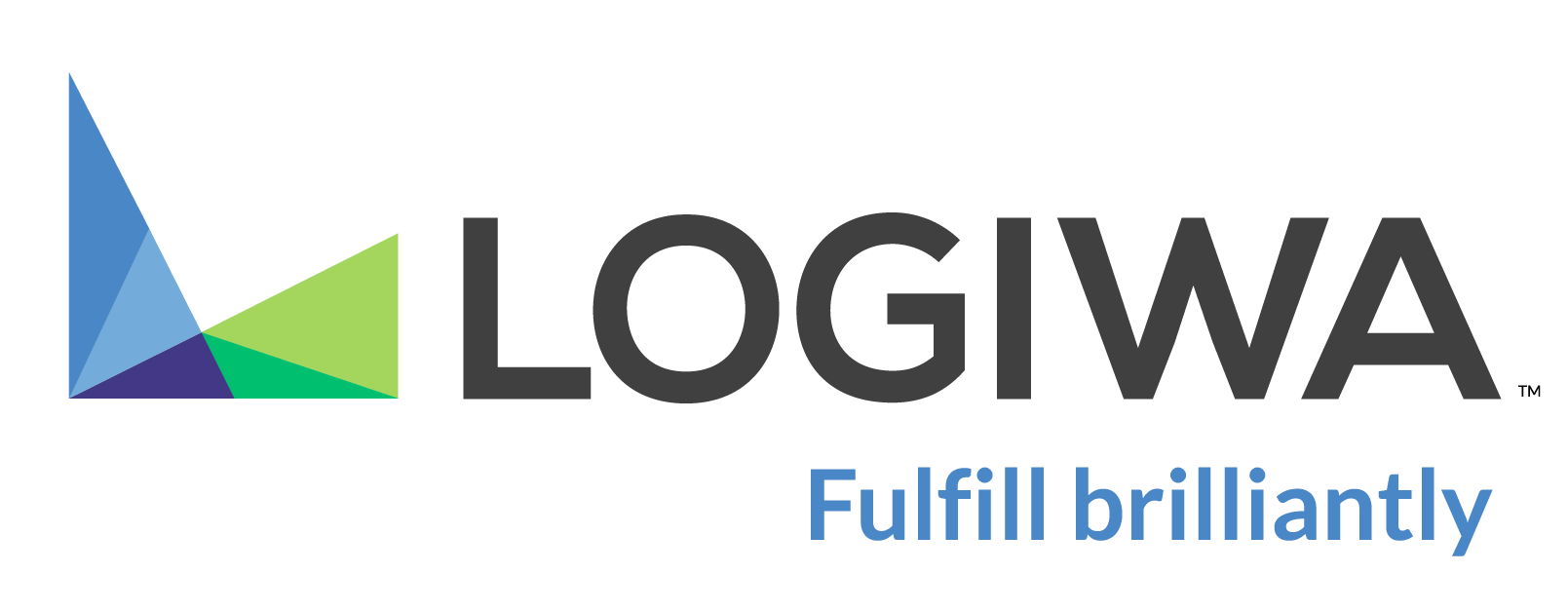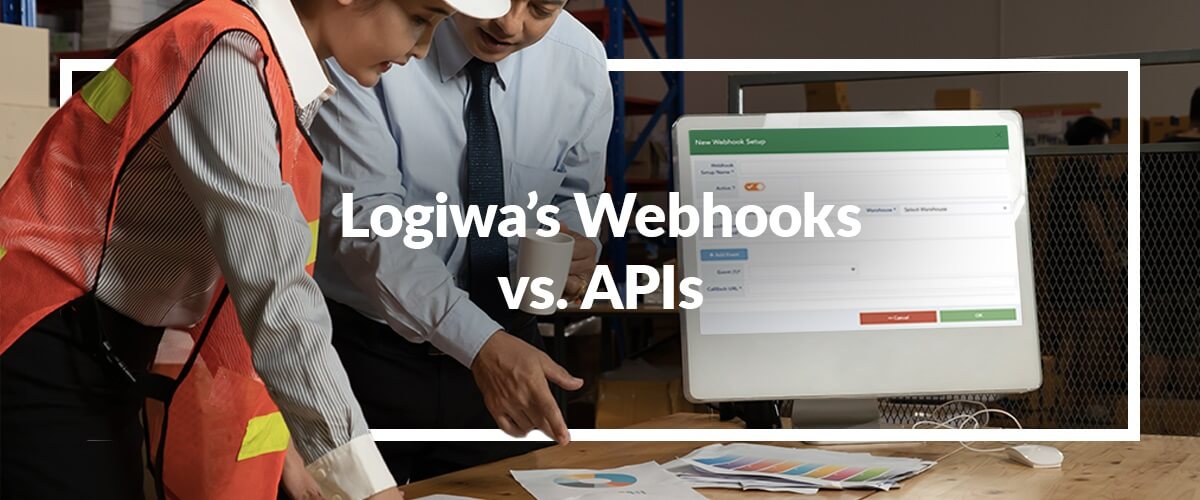Logiwa’s webhooks take smart automation to the next level by synchronizing integrated platforms and expediting fulfillment processes, resulting in heightened visibility and control over fulfillment operations. Let’s break down the fundamentals of WMS webhooks, the types of webhooks Logiwa offers, and the benefits of using our webhook technology as part of your fulfillment strategy.
Here are the key takeaways about webhooks:
- Logiwa’s webhooks generate lightweight, real-time notifications based on events in your WMS to ensure your other integrated systems are accurately updated on what’s happening inside your warehouse.
- Logiwa’s webhooks allow you to subscribe to Event-Driven Notifications about changes in your WMS data to help increase the accuracy and speed of fulfillment processes.
- Logiwa WMS currently offers seven types of webhooks for key events affecting fulfillment operations in high-volume ecommerce warehouses, and more are on the way.
- Logiwa’s webhooks are designed to be intuitive, easy to set up, prioritize clarity and security between integrated technologies, and used alongside traditional APIs.
In this guide, we’ll discuss:
Logiwa’s Webhooks 101
Today’s fulfillment providers must be able execute consistent operations in spite of the ever-changing circumstances created by modern ecommerce. That includes being able to respond effectively when certain events or changes related to orders, inventory, shipping, and administrative processes occur in your warehouse management system (WMS).
Logiwa’s webhooks generate real-time notifications to keep your WMS and other systems, such as Order Management Systems (OMS) or Enterprise Resource Planning (ERP) solutions, accurately updated on what’s happening inside your warehouse. They are a simple, highly effective alternative to API calls, and support the rapid communication of critical information throughout your fulfillment network.
How Logiwa Webhooks Work
Logiwa’s webhooks, like all webhooks, work similarly to APIs in that they allow data to be shared between two systems. That said, there’s a critical difference: webhooks are event-driven. This means that when a specific “trigger” occurs in one system (i.e. Logiwa WMS), a notification is immediately sent to another (i.e. your OMS or ERP).
What differentiates webhooks from an API connection is that webhooks do not depend on requests and responses in order to allow two systems to communicate with one another. Moreover, only necessary information gets exchanged, and only when a predefined event occurs.
Advantages of Using Logiwa’s Webhooks vs. APIs
One of the primary advantages of using Logiwa’s webhooks is that notifications are sent once (so long as the message is successfully received) and in real-time. This limits the amount of network traffic between systems and keeps your various solutions and tools in sync. It also allows your applications to run more efficiently, as fewer calls are happening between platforms.
Logiwa’s webhooks also operate with smaller file sizes, so notifications are lightweight compared to API calls. Since notifications are more compact, this form of data sharing diminishes lags and risk of duplicative, outdated or inaccurate exchanges between systems.

Logiwa’s Current Webhooks
Logiwa’s webhooks launch critical data between your systems and can be integrated intuitively with your other tools and workflows to accelerate operations, promote system accuracy, and maximize the results of your integrations.
Our current list of webhooks, include:
- Shipment, Purchase, and Receipt Order Status Update
- Inventory Change
- Location Update and Movement Info
- Order Shipment Info
- Shipment Tracking Info
- Receipt Info
- Order Consolidated Shipment Info
Our cloud fulfillment platform already has webhooks established for these key events, and we’ve got more on the way. Learn more about Logiwa’s integration technology in our blog, “WMS Integration Technology That Cannot Fail: The Logiwa Difference.”
6 Reasons to Start Using Logiwa’s Webhooks
Whether you oversee B2B, DTC or hybrid operations, you must be able to track and react to real-time activity happening throughout your supply chain. Luckily, Logiwa’s webhooks provide the speed and efficiency you need to maintain powerful visibility and control.
Here are 6 reasons to get started with Logiwa webhooks:
- It only takes four steps to set up webhooks in Logiwa WMS. Our webhooks are easy to launch, so you don’t need to worry about delays or complicated coding in order to get started. Simply head to “Webhooks Setup” from our Entity navigation menu and do the following four actions: name your webhook; select the client and warehouse it pertains to; select the event you want to receive notifications on; and provide your Callback or Return URL (a.k.a. the HTTPS endpoint address where you want the notification to be sent). Our system automatically turns on your webhook once you hit save, so you can start receiving notifications right away.
- Logiwa’s webhooks will re-send notifications if an error occurs. When the event you’ve subscribed to occurs, Logiwa will send you a notification as a HTTP POST request in JSON format to the endpoint you provided. If an error occurs between the systems, however, we’ll send the notification up to three times. That way you can take quick action to resolve any issues preventing your webhook from delivering notifications. We can also send you an email notification to inform you of the error depending on your preference.
- Our webhooks are named intuitively. We’ve built our webhooks to be practical and follow a conventional naming system. This ensures names are simple to understand and describe the exact information the trigger event will inform you of. For example, the Shipment Order Status Update webhook will send you a notification every time the Status of an Order changes.
- Logiwa webhooks & APIs can be used together. Even though webhooks come with distinct advantages, Logiwa actually encourages our clients to utilize both webhooks and APIs together. Our webhooks will send you the individual data for each and every event that occurs, and your API calls can be used to do a sum check on that data. This ensures you get the best of both worlds – the speed and accuracy of webhook capabilities and the validation that all of the notifications were successfully received and processed by your systems.
- Logiwa’s webhooks simplify information on multiple fronts. Our webhooks provide effective updates without including excessive amounts of information. To ensure clarity and security, we place our signature (which includes a unique combination of your account, Logiwa warehouse, and subscribed webhook) in the header of each notification, so you know the message is safe to open within your endpoint system. Additionally, every event has its own unique date, which can be used to troubleshoot the data in your system if verification is needed.
- You can personalize the names of your webhooks. We know that every operation works a little differently, so we make sure you can name your webhook something that is meaningful to your operation. You’ll likely have a lot of webhooks, especially if you’re a 3PL and overseeing multiple clients, so our webhooks take this into consideration during the setup stage.
As webhooks are subsect of APIs, Logiwa’s webhooks are available for you to use today with a purchased API user seat. If you aren’t already an API user, please reach out to your Customer Success Manager for assistance getting this set up in your Logiwa WMS.
Logiwa’s Webhooks Resources
Ensuring your operations are operating based on accurate, timely data is essential for achieving high-volume fulfillment success. That said, we understand that using new tools can take some getting used to. That’s why we’ve created additional resources to aid your team when you are ready to start setting up webhooks for the first time.
We’ve provided documentation at developer.logiwa.com on each of the available webhooks, including information on the trigger that initiates each type of webhook notification, an example JSON notification for each, as well as information on all of the fields that we will be passing to your system. We also have a Knowledge Article available for our clients that takes you through the setup process. That Knowledge Article also provides useful information on how you can perform testing using Webhook.site. Talk to your customer success manager for more insights.
Download Logiwa’s Webhooks Data Sheet for more insights on webhooks and how Logiwa’s approach to integration can serve your high-volume fulfillment operations today.
FAQs on Webhooks Technology
What are webhooks?
Webhooks are a type of simplified API that allows for two systems to talk to each other and share data. With webhooks, applications like Logiwa WMS can send notifications to other systems to expedite and inform a variety of processes.
How do webhooks differ from APIs?
What makes webhooks different from APIs, which rely on sets of requests and responses, is that they are solely event-driven, smaller in size, and do not require permissions to allow information to pass back and forth between systems. In other words, notifications are launched the moment a specific Trigger event occurs, e.g. a change in order status, or when your available inventory changes.
Why should you consider using webhooks over APIs?
Webhooks provide timely data because messages are sent the moment a trigger event occurs. This allows you to receive notifications and initiate next steps in real-time. Webhooks use lightweight file sizes and only occur once (so long as the connection is successful), so your application can operate more efficiently.
What types of webhooks does Logiwa WMS offer?
Logiwa currently offers webhooks for: Shipment, Purchase, and Receipt Order Status Update; Inventory Change; Location Update and Movement Info; Order Shipment Info; Shipment Tracking Info; Receipt Info; Order Consolidated Shipment Info; and more on the way!
Turn High Volume DTC fulfillment excellence into your competitive advantage
Warehouse Management
Modern digital WMS powers a modern fulfillment experience






